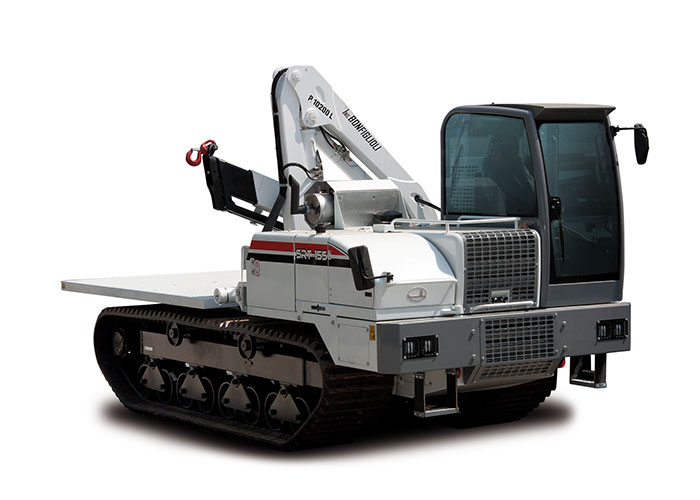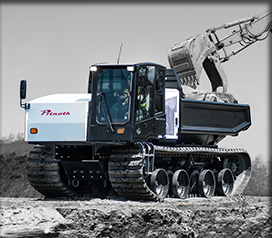A Comprehensive Overview to the Different Sorts Of Oil Field Equipment and Pipeline Equipment Available
The oil and gas sector counts greatly on specialized equipment for efficient extraction and transport. Different types of equipment, from piercing rigs to storage tanks, play crucial duties in this complicated procedure. Each piece of devices serves unique functions that add to overall functional success. Comprehending these parts is crucial for anyone associated with the industry. As the market progresses, so as well do the innovations that support it. What developments are on the horizon?

Drilling Rigs: The Backbone of Oil Expedition
Drilling rigs offer as the essential equipment in the domain name of oil expedition, allowing firms to gain access to hydrocarbon gets buried deep below the Planet's surface area. These rigs are available in various types, including land rigs, offshore rigs, and mobile systems, each designed to operate in particular settings. Geared up with sophisticated modern technology, piercing rigs can penetrate geological developments with precision, making certain efficient resource removal. The architectural integrity and operational capacities of these rigs are vital, as they need to stand up to severe conditions and considerable pressures. The selection of a drilling rig influences the total task price and timeline, making it an important factor to consider for oil firms seeking to enhance their expedition initiatives and make best use of performance in their procedures.
Pumps: Necessary for Liquid Motion
In the oil extraction process, the function of pumps is substantial, assisting in the motion of fluids throughout numerous stages of production. Pumps are essential for transporting unrefined oil, water, and various other fluids from below ground storage tanks to the surface area and then through pipelines to refineries. They can be found in various types, consisting of centrifugal, positive displacement, and completely submersible pumps, each serving specific objectives based upon the fluid characteristics and functional demands. Centrifugal pumps are typically used for their performance in high-flow applications, while favorable displacement pumps succeed in managing viscous liquids. The option of pump impacts total effectiveness, functional security, and upkeep costs. Correct option and maintenance of pumps are vital for maximizing production and reducing downtime in oil field operations.
Shutoffs: Controlling Circulation and Pressure

Valves play a vital role in managing the flow and pressure of liquids within oil fields and pipelines. Different kinds of shutoffs serve unique applications, each developed to accomplish specific functions fundamental for efficient procedure - Superior Rentals fusion machines. Recognizing the characteristics and uses these valves is important for optimizing system performance and safety
Sorts of Valves
Important components in oil field procedures, shutoffs play a crucial role in controlling the circulation and pressure of fluids within pipelines and equipment. Numerous sorts of valves are utilized to satisfy the varied requirements of oil and gas production. Usual kinds consist of gate shutoffs, which supply a straight-line flow and marginal stress decline; globe valves, known for their throttling abilities; and ball valves, acknowledged for their quick on/off control. Furthermore, check valves protect against heartburn, while butterfly shutoffs provide a light-weight option for controling flow. Each valve type is designed with details products and setups to endure the harsh problems usually discovered in oil fields, ensuring dependability and performance in operations. Recognizing these types is critical for reliable system administration.
Valve Applications and Features
While different sorts of valves serve unique functions, their key applications revolve around regulating flow and stress within oil and gas systems. Valves such as entrance, world, and sphere valves manage fluid activity, making sure peak performance and safety and security. Gate shutoffs are typically made use of for on/off control, supplying very little flow resistance. World shutoffs, on the other hand, deal precise flow guideline, making them suitable for throttling applications. Round shutoffs are preferred for their quick operation and tight sealing capacities. Additionally, pressure alleviation shutoffs are essential for preventing system overpressure, securing devices integrity. In general, the appropriate selection and application of shutoffs boost functional efficiency, ensuring the reputable transportation of oil and gas via pipelines and handling centers.
Compressors: Enhancing Gas Transport
Compressors play a crucial duty in the efficient transport of gas, making sure that it relocates efficiently through pipelines over cross countries. These gadgets boost the stress of all-natural gas, permitting it to get rid of rubbing and altitude changes within the pipeline system. Furthermore, compressors promote the harmonizing of supply and demand, suiting variations in intake and production prices. Numerous kinds of compressors are employed in the market, including centrifugal, reciprocating, and rotary screw compressors, each offering distinctive advantages based on the operational requirements. Normal upkeep of these compressors is necessary to make the most of efficiency and lessen downtime, inevitably adding to a reputable gas transportation network. Their crucial function underscores the significance of compressors in the general oil and gas facilities.
Storage Tanks: Safe and Reliable Fluid Administration
Reliable transportation of gas counts on various supporting systems, among which is the appropriate administration of storage tanks. These tanks play an important role in securely consisting of liquids, guaranteeing that operational effectiveness is maintained while decreasing directory ecological risks. Created from resilient products, they are developed to hold up against high pressures and corrosive aspects. Properly sized and purposefully located, tank assist in the smooth flow of all-natural gas and various other fluids, protecting against bottlenecks in supply chains. Normal maintenance and tracking are vital to detect leakages or architectural concerns, promoting safety and conformity with regulatory criteria. Eventually, the efficient administration of storage space containers is important for the general integrity and reliability of the oil and gas industry's liquid handling systems.
Pipeline Systems: Framework for Transportation
Pipeline systems offer as the backbone of the oil and gas sector, helping with the reliable transportation of hydrocarbons over huge distances. These systems consist of different parts, including pipelines, shutoffs, pumps, and compressors, all carefully created to assure smooth circulation. The products made use of in pipeline building, often steel or high-density polyethylene, are selected for resilience and resistance to deterioration. Pipeline networks can cover across land and water, connecting manufacturing websites to refineries and distribution. Additionally, progressed modern technology enables real-time monitoring of circulation rates and stress levels, enhancing functional effectiveness. The tactical placement of these pipelines reduces ecological effect while taking full advantage of resource availability, consequently playing a necessary function in meeting energy demands globally.
Safety And Security Equipment: Making Certain Worker and Environmental Management
The procedure of pipeline systems, while important for energy transport, also presents substantial safety difficulties for employees and the atmosphere. Safety and security tools plays a considerable duty in mitigating these dangers. Personal safety equipment (PPE) such as safety helmets, gloves, and non-slip footwear safeguards employees from physical threats. In addition, gas detection systems monitor for leaks, ensuring that hazardous compounds do not present a hazard to personnel or the bordering ecosystem. Emergency situation closure systems are vital hot water heater plumbing for promptly halting operations during a situation, protecting against possible disasters. Spill control products, including absorbents and obstacles, are essential for reducing ecological effect. Overall, investing in all-inclusive safety tools is vital for preserving functional stability and protecting both employees and the environment in the oil and about his gas market.

Regularly Asked Inquiries
Just how Do I Choose the Right Oil Field Equipment for My Project?
Choosing the right oil field devices includes evaluating job specifications, spending plan constraints, and functional needs. Take into consideration factors such as tools reliability, compatibility with existing systems, and the vendor's track record to guarantee peak performance and security.
What Are the Upkeep Demands for Oil Field Equipment?
Upkeep needs for oil area equipment consist of routine inspections, lubrication, and timely repair services. Operators needs to additionally abide by maker guidelines, monitor performance metrics, and warranty conformity with security regulations to improve longevity and efficiency.

Just How Can I Ensure Compliance With Environmental Regulations?
To guarantee compliance with environmental policies, business have to carry out regular audits, implement ideal methods, purchase training, maintain proper paperwork, and stay updated on regulations (Superior Rentals Contact). Cooperation with ecological firms can likewise improve adherence to policies
What Is the Average Lifespan of Pipeline Equipment?
The ordinary life-span of pipeline devices normally varies from 20 to 50 years, depending on factors such as worldly high quality, environmental problems, and upkeep techniques. Normal evaluations can greatly influence durability and operational efficiency.
Just how Do I Securely Transport Oil Field Equipment to Remote Locations?
Transferring oil field devices to remote locations calls for cautious planning, consisting of path assessment, protecting permits, making use of proper cars, and making sure safety and security procedures are adhered to. Proper training and interaction among crews are essential for successful transportation.